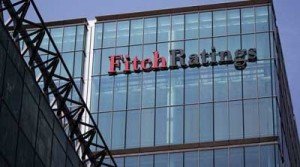New Delhi, Dec 8: Fitch Ratings has affirmed India’s rating at ‘BBB-‘ — the lowest investment grade – with a stable outlook, saying strong medium-term growth outlook and favourable external finances balance out weak structural features, including its business environment.
“India’s sovereign ratings and a stable outlook balance a strong medium-term GDP growth outlook and favourable external finances, including a strong foreign reserves buffer, with a high government debt burden and weak structural features, including a difficult – but improving – business environment,” Fitch Ratings said in a statement.
BBB- is just a notch above the ‘junk’ status. “The stable outlook reflects Fitch’s view that upside and downside risks to the ratings are balanced,” it said.
The sovereign rating and outlook for a country are often referred to as key parameters by foreign investors and global bodies to gauge its investment climate.
Fitch forecast that India’s GDP growth will accelerate to 7.5 per cent in the current fiscal and further to 8 per cent in 2016-17 supported by the government’s beefed-up capex spending and gradual implementation of a broad-based structural reform agenda.
“India’s positive GDP growth outlook stands out globally. The RBI policy rate cuts of 1.25 per cent in total in 2015 are also likely to contribute to higher GDP growth even though monetary transmission is impaired by relatively weak banking sector balance sheets,” it added.
Indian economy expanded at 7.3 per cent in the previous fiscal. Of the 1.25 per cent RBI rate cut, banks have so far passed on up to 0.60 per cent to borrowers.
Fitch said the government continues to steadily roll out its ambitious structural reforms agenda, including recent new measures that may improve the business environment, including changes in the foreign direct investment regime.
Fitch also said decline in government debt burden, improved business environment through reforms, higher growth, investments and controlled inflation would lead to positive rating action.
However, a deviation from the fiscal consolidation path, deterioration in the banking sector’s asset quality, higher inflation and widening of current account deficit could lead to a negative rating action, Fitch warned.



























